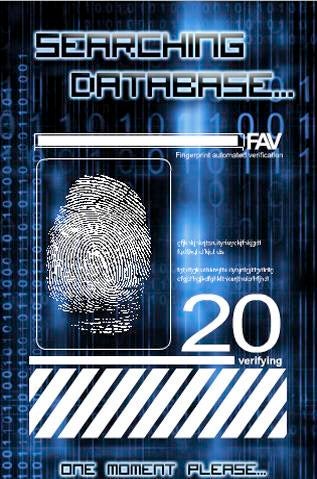India plans fingerprint IDs for billion-plus citizens

India's 1.
16 billion people are each to receive their own identity number under a monumental plan designed to cut corruption and improve distribution of state benefits.
The project - modelled on social security numbers in the United States - will compile an Internet database of the personal details, fingerprints and photograph of every Indian across the vast and chaotic country.
Responsible for turning the dream into reality is Nandan Nilekani, co-founder of India's giant software firm Infosys, who was handpicked for the task by Prime Minister Manmohan Singh.
"We are aiming to provide online authentication for all Indian residents," Nilekani, 54, told AFP. "We hope to provide 600 million people with numbers by 2014."
Nilekani, head of the newly formed Unique Identity Authority of India, described collating the data as like "building something on the scale of Google".
He said he could not give a date when it would be completed, but vowed that the job would get done.
The 16-digit number will be the one-stop proof for all Indians to establish their identity, eliminating the current need to produce multiple personal documents even for something as simple as getting a pre-paid mobile phone.
Eventually all new-born children will be issued with an ID number, and eye-scan technology will also be introduced in the long-term.
"We need one single non-duplicate way of identifying a person and we need a mechanism by which we can authenticate anywhere that someone is who they say they are," Nilekani said.
"Once you say your name and put your finger on a fingerprint reader, the information will show the truth.
"This number is an enabler for all kinds of things, and will be used by different government agencies in different ways."
Supporters of the ID plan say it will improve efficiency and cut out the reams of paperwork.
But critics predict it will be impossible to compile an accurate, updated record of India's teeming millions and that the database will be prone to abuse by both government and individuals.
"I am not sure how people in rural areas - where education levels are low - will relate to these unique identity numbers," said Sanjay Kumar, of the Delhi-based Centre for the Study of Developing Societies.
"Awareness among rural people about the numbers and use of fingerprinting is low. I also think it is difficult to cover the entire rural population."
Bolstering the sceptics' argument is the estimated multi-billion dollar cost of the scheme - and Nilekani's refusal to discuss budget figures.
"It is a joke," said Colin Gonzalves, a lawyer with the New Delhi-based Human Rights Law Network.
"A country that can't ensure food for 70 percent of its population is planning a scheme like this. It is purely a surveillance mechanism."
But Arjun Sengupta, author of a 2007 government study that found 836 million Indians living on less than 20 rupees (43 cents) a day, said ID numbers would help tackle poverty.
"I think it has the potential to ensure subsidies meant for the poor reach them," he said.
According to government figures, only seven percent of Indians have a Permanent Account Number, which is used to collect income tax.
Much official business in India is still carried out using triplicate, hand-written forms rather than computers, causing countless confusions, errors and delays.
Swapan Garain, a professor at the Mumbai-based Tata Institute of Social Sciences, also pointed to numerous allegations that money or jobs meant for the underprivileged are routinely siphoned off by corrupt officials.
"The unique identity number will track the money and the people in the system and ensure service is delivered to the right target," he said. "The government has woken up to the needs of the invisible masses."
The database will be developed from India's voter registration lists - which contained about 714 million names for this year's general election - and the first ID number is expected to be issued within 12 months.
Raman Roy, a pioneer among India's IT industry and head of Quatrro Consulting, dismissed worries about hackers sabotaging the database.
"Given Nandan's expertise, I am sure he will have adequate security features in place. He also has plans to make it commercially viable - charging a nominal fee for all those wanting to access the database.
"But that's in the future. Now what we need to worry about is the volume of information that the system will have to handle," he said.
"It's a huge challenge. Nowhere in the world is there a database one-tenth of the size. Are we up to it? Yes, we are."
Subscribe to Independent Premium to bookmark this article
Want to bookmark your favourite articles and stories to read or reference later? Start your Independent Premium subscription today.

Join our commenting forum
Join thought-provoking conversations, follow other Independent readers and see their replies